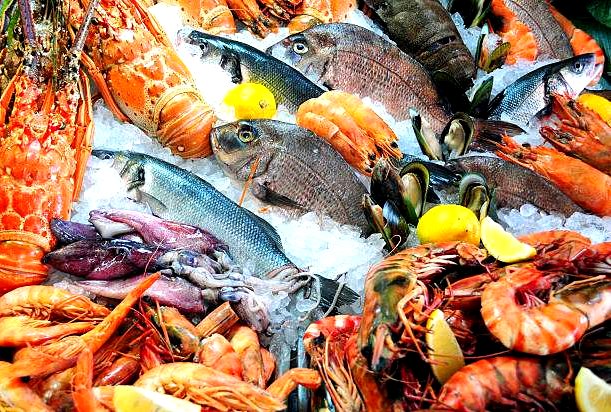If you're in search of an extraordinary lifestyle transformation through diet change, pescatarian or vegan diets could provide immense health advantages. Such benefits reportedly include decreased chronic illness risk as well as improvement in one's physical and mental wellbeing. Pescatarians tend to include delicious seafood offerings as part of their culinary repertoire while vegans strictly refrain from any products derived from animals in their meals.
Given these circumstances, this article seeks to answer an age-old question that lingers on everyone's mind: which diet reigns supreme - pescatarianism or veganism? In order to do this, an extensive analysis will be undertaken of each diet while considering both their respective health advantages and impacts, environmental and ethical perspectives and any possible nutrient deficiencies they might cause.
If your pursuit of knowledge has you stumped over which lifestyle choice would best serve your personal health goals and beliefs, read this insightful piece on pescatarian and vegan diets to gain more clarity as to which would suit them better. Once complete, this content should provide more of an understanding of which diet could suit you.
I. "Pescatarian Diet"
The Pescatarian Diet has long been recognized as an innovative approach to eating healthily. A pescatarian diet incorporates fish and seafood while forgoing other types of meat, providing adequate levels of animal protein while still accommodating fruits, vegetables, whole grains, eggs and dairy products in its menu plan.
Benefits of Pescatarianism
One of the core advantages of pescetarianism is access to omega-3 fatty acids found in fish and seafood, which have been shown to mitigate cardiovascular disease, boost brain health, and reduce inflammation. To reap its many health-promoting advantages, The American Heart Association suggests eating two servings of salmon, sardines, tuna or mackerel each week as part of your weekly fish consumption regimen.
Contrary to other diet approaches, seafood provides an abundance of trace minerals and vitamins, including essential iodine, selenium and vitamin D nutrients which promote proper thyroid functioning, protect cells from damage and promote bone health respectively. With plant-based foods proving harder to come by for such essential nutrient requirements than seafood can, pescatarian diets become more desirable among potential adherents.
Protein in seafood is especially helpful in building and repairing tissues throughout the body, while pescatarians can add nuts and seeds as sources of healthy fats to their diet for an additional nutritional boost.
Mercury Levels in Seafood
One important consideration when purchasing seafood should be the mercury concentration levels present, since exposure to excessive mercury toxicity can be harmful. Pregnant women, children, and those with impaired immune systems should select seafood with lower mercury concentration levels in order to mitigate potential health risks and pescatarians should limit consumption in order to limit excessive exposure to certain harmful contaminants.
"Going forward, this section will examine veganism and its myriad health advantages."
Learn about the Pescatarian Diet at Medical News Today.II. Pescatarian Diet
Veganism can be difficult to comprehend as its food preferences may seem far removed from our usual ones. Veganism is a plant-based diet which eschews all animal products including meat, fish, dairy and eggs from its consumption; vegans rely exclusively on an assortment of fruits vegetables grains and legumes instead for nutrition needs - an approach which has proved highly successful both environmentally friendly and resonates with diverse individuals striving towards ethical goals.
Eating Whole Plant-Based Foods Provides Essential Nutrients
Veganism emphasizes eating whole plant-based foods that provide essential fiber, vitamins, and minerals essential for maintaining a healthy colon, improving digestive health, and fighting chronic illnesses such as heart disease, type 2 diabetes and certain cancers.
Reducing Cardiovascular Disease and Improving Heart Health
Veganism has long been recognized for its potential role in helping prevent cardiovascular disease and reverse its adverse impacts. Plant-based foods found in vegan diets are believed to lower cholesterol levels, reduce blood pressure, reduce oxidative stress levels and enhance endothelial function - all factors which contribute to better heart health overall.
Plant-Based Sources of Protein
Vegan diets provide another important advantage by emphasizing plant-based sources of protein. Contrary to popular belief, most of the protein consumed by vegans comes solely from plant sources; in many instances these contain richer nutritional values than animal sources such as legumes, nuts, seeds or soy products - thus satisfying daily protein requirements without animal products consumption and creating an enjoyable dining experience.
Ensure Holistic Nutrition
However, vegans must ensure their nutrition intake is holistic and mindful of potential deficiencies in specific vitamins and minerals. Vitamin B12 can only be found naturally in animal products; fortified foods and supplements must therefore be used. Iron and calcium sources from plants might also not be as abundantly available, so care must be taken to ensure adequate amounts are consumed.
Ethical and Environmental Advantages
Finally, veganism cannot be discounted due to its ethical and environmental advantages. Adopting a vegan lifestyle significantly contributes to environmental sustainability by decreasing negative social and ecological effects associated with using animal products.
III. Vegan Diet
Dietary recommendations have long befuddled even the health-conscious among us, prompting questions such as which diet would be the most suitable fit. Pescatarian and vegan diets continue to generate debate among health experts; before choosing either option over another, it's crucial that one takes a close look at each, weigh its benefits carefully against one another, consider their unique needs and goals and then make a mindful choice.
Are You Searching to Strengthen Heart Health and Cognitive Ability with Diet? The Pescatarian Diet May be Just the Thing
Wait, don't discount veganism just yet! If you want to decrease your carbon footprint, reduce cancer risks or type 2 diabetes risks, improve overall health, or take an ethical stance against animal agriculture then veganism might be worth exploring further. Focusing on whole plant-based foods provides essential proteins, vitamins and minerals while decreasing saturated fat intake - not to mention that being vegan offers moral and ethical perks too!
Decision-making between pescatarian and vegan diets may be daunting. Personal preferences, lifestyle needs and potential nutrient deficiencies all play a part in making your decision; to be safe it's wise to consult a healthcare provider or registered dietitian to ensure you're meeting all of your nutritional requirements.
Overall, having the best of both worlds may not be possible when it comes to diet choices. Addressing whether pescatarian or vegan diets are indeed healthier is often a difficult choice; individual needs, goals, and values ultimately determine this answer; when selecting an appropriate diet plan or combination thereof it is essential that these factors be kept in mind while making decisions regarding food consumption and ensuring you're consuming a variety of food to meet nutritional requirements.
Get the facts about Vegan Diet on Healthline.IV. Which Diet Is Best For You?
As part of our nutritional analysis, we conducted an in-depth comparison between pescatarianism and veganism with the goal of finding out which of these two diets provides the optimal path toward attaining optimal health. Both have distinct advantages that could reduce heart disease risk as well as certain cancer types; improve cognitive performance; reduce environmental footprint; but the choice ultimately lies with each individual based on preferences and goals.
Pescatarian Diet for Balanced Nutrition
If animal protein is essential to your nutrition but you want to decrease meat consumption, then perhaps the pescatarian diet is best suited to meeting your goals. It includes fish and seafood as it offers abundant omega-3 fatty acids as well as essential vitamins and minerals, while eggs and dairy continue to serve as important sources of nourishment.
Veganism for Whole Food Nutrition
If your primary concerns include improving nutrition, reducing environmental impact, and prioritizing animal welfare concerns, then veganism emerges as the obvious choice in this debate. Relying heavily on plant-based sources as nutrition sources eliminates animal products while providing essential vitamins like B-12.
At its core, finding an optimal diet requires finding one that fits with both your lifestyle and individual nutritional requirements. Advice from a healthcare practitioner or registered dietitian can be crucial in ensuring you reach all of your dietary goals and needs. As is often the case, choosing between pescetarianism and veganism isn't a matter of right or wrong diets; rather, selecting the one which best meets individual goals and objectives. With knowledge about both approaches and their impact in boosting wellbeing, making an informed decision and taking steps toward leading a healthier life becomes much simpler.
Conclusion:
Studies into the benefits and drawbacks of pescatarian and vegan diets make it evident that both can provide various health advantages depending on an individual's specific needs and objectives. While pescetarian eating provides abundant animal proteins while simultaneously decreasing red meat and saturated fat consumption, making it an excellent way to support cardiovascular health. Meanwhile, adhering to a vegan diet provides numerous fiber, essential vitamins, and minerals found within plant sources while upholding ethical and environmental concerns simultaneously.
At the end of the day, adopting either a pescatarian or vegan diet ultimately depends on one's preferences, nutritional needs and beliefs. No single diet can address all your nutritional requirements simultaneously - therefore it is key that processed food be minimized while prioritizing whole foods for satisfying individual dietary requirements.
If an individual is contemplating transitioning to a pescatarian or vegan diet, consulting healthcare professionals and registered dietitians is strongly advised. They could provide invaluable assistance and advice regarding what will best meet one's health requirements while potentially identifying potential nutrient deficits to facilitate creating a nutritious and healthful eating plan.
Overall, neither pescatarian or vegan diets are inherently healthier than the other; choosing an appropriate dietary regime depends on personal objectives, lifestyle considerations and individual values. With thoughtful meal planning and nutritional guidance from professional advisors, either of these diets may contribute to lifelong health benefits, improve overall well-being and foster greater consideration of environmental concerns.




